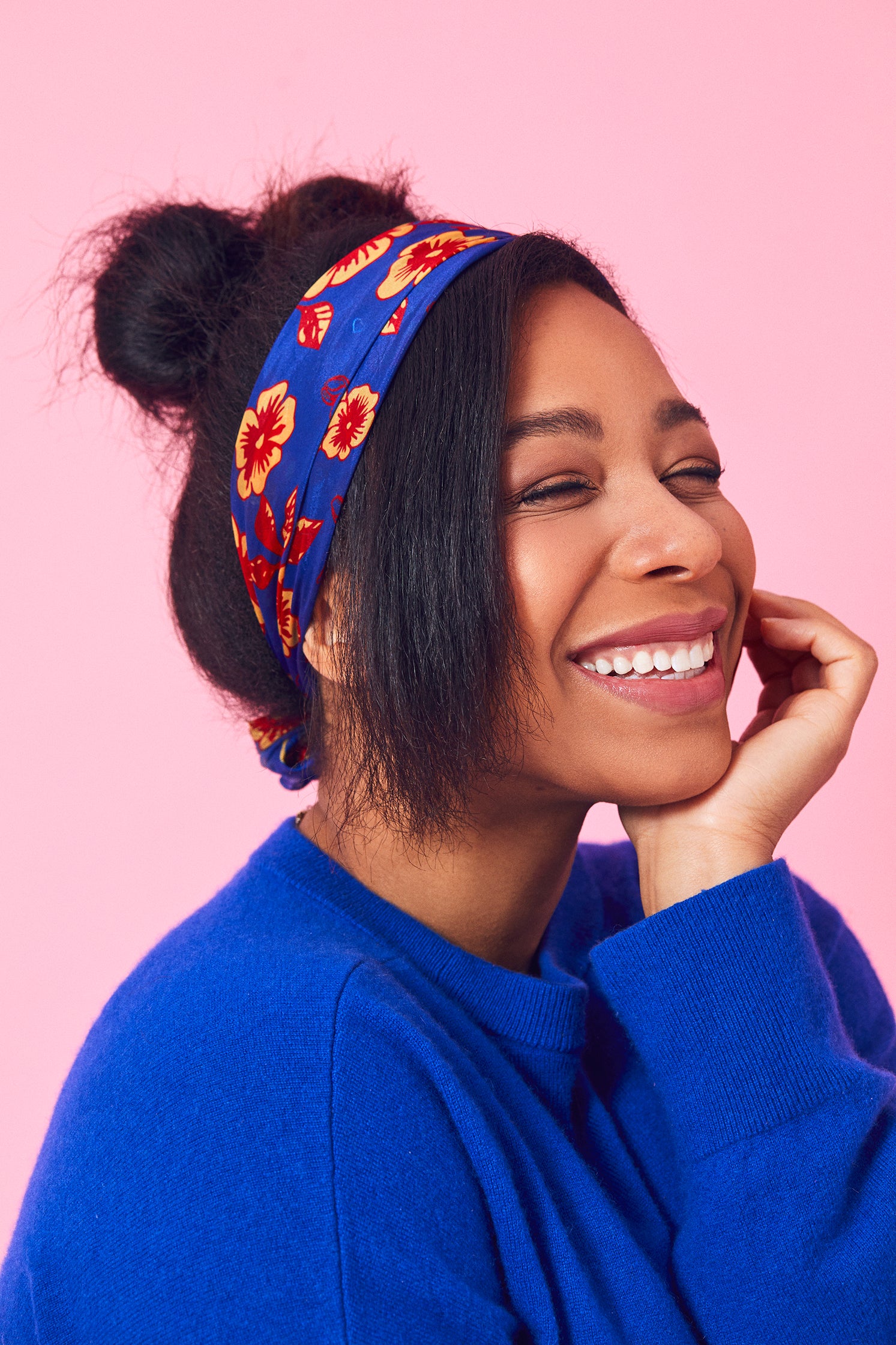
As a child, television meant everything to writer, producer, showrunner and actress Asha Michelle Wilson. So much that Wilson’s mother didn’t allow her to watch TV during the week, knowing that if she let her daughter indulge, she wouldn’t get anything else done. But Wilson was clever and found ways to work around her mother’s no-TV mandate.
“I remember once sitting at the dining room table, behind me my parents were watching TV and above me, there was this picture on the wall,” Wilson recalls. “In the glass reflection I could see the TV, So I was like, ‘Ok, I’ll do my homework but I’ll sneakily watch.’ It didn’t matter what it was, I just really liked the stories that were being told.”
By the time she was six years old, Wilson had decided she wanted to be a part of that world in one way or another. While her career has provided her the opportunity to be involved in television in virtually every way, Wilson got her start writing.
“I would go to my parents’ computer and write a little scene and work on it every few days, back when we had a computer room,” Wilson tells ESSENCE with a laugh.

Growing up in Southern Florida, she didn’t know anyone who worked in television so she pursued anything art related. Wilson went to writing and theater camps, wrote for her high school newspaper and yearbook. These activities aren’t the most traditional route to a career in entertainment but Wilson says her participation helped her to fine tune her voice. Eventually, she did make a more typical decision for her career and moved to Los Angeles. But at the time, Wilson didn’t consider the relocation to be all that significant.
“I initially planned to go to New York and do sketch comedy,” she says. “Then I wanted to move to London and do British comedy. Funnily enough, coming to L.A., felt like, ‘Oh well, I guess I’ll go. There’s like an internship program I could do. I guess this works for right now.’”
It did work. A family friend knew Debra Martin Chase, the woman behind TV movies like Princess Diaries, Cheetah Girls, and the Sisterhood of the Traveling Pants. Wilson asked this family friend if she could have a minute to speak with Martin Chase and that’s how she got the position.
Being that close to the action for the first time, Wilson began to understand the importance of being in Hollywood. “I really got to see for the first time how making a project really worked. I did script coverage for the first time and I realized I needed to be in L.A. to make this career happen.”
The next summer, Wilson returned to L.A. and worked on a scripted YouTube show in the writer’s room. After that internship, Wilson went from project to project, slowly establishing herself in the business. But after the animated show she worked on was canceled after its second season, she had to take a job working as a nanny. Luckily, even that position eventually helped to advance her career.
“The woman I was babysitting for was very much like, ‘I’m not looking for a full-time nanny.’ And I said, ‘I don’t want to be a full time nanny.’ So we became friends,” Wilson says. “I told her I was a writer and she offered, very generously, to read my stuff. She was a writer as well. After a few months of working with her—she obviously trusted me, I was watching her daughter—she heard about a PA (production assistant) position.”

The woman passed along Wilson’s resume and the following week she went in for an interview. Eventually, she was offered the position on Ryan Murphy’s Scream Queens. Wilson would work with Murphy again on American Horror Story and Feud: Bette and Joan.
Wilson knows for a fact she wouldn’t have gotten the job without the connection of the woman she nannied for and uses his experience to encourage other creatives who may find themselves taking on odd jobs outside of their field while they wait for things to fall into place.
“I worked as a waiter, I’ve worked in bookstores. I drove Lyft for a little bit,” Wilson admits. “I think it’s kind of remembering that if you know you’re going to hustle, you’ll get to that next thing. It doesn’t have to be forever.”
It’s no secret that Hollywood, while improving, is not exactly known for its diversity. Reflecting on her own experiences up until this point, Wilson says it’s been a mixed bag.
“There have been amazing, amazing moments and there have been really hard moments,” Wilson says. “I’m so, so, so grateful for the people who have come before me and made the path so much easier. I think about Yvette Lee Bowser, who created Living Single. She was the first Black woman to sell a network comedy. I would not be where I am if not for people like her. The woman who sent my resume for Scream Queens was a Black woman. I think of things like that in terms of the support that I’ve gotten in such an incredible way.”
But there is also the flip side. “Then there have been times where I’ve been in rooms where the entire cast was white and I’ve said, ‘It’d be really great if we had one person of color in here’ and being told, ‘Yeah, yeah, yeah. We’ll get there.’ Then I had one of my assistant friends tell me that they heard a conversation with my bosses where they said, ‘Asha’s really got to get off the diversity thing.’”
Wilson says she’s had to find the balance of being respectful of her bosses but also reminding them why she’s in the room in the first place. She says she’s surprised and impressed herself with her outspokenness in the face of exclusion.
“I always thought of myself as someone who was like, ‘I’ll just ride the wave. I don’t want to rock the boat.’ And then actually being in the space and being like, ‘No, I’m going to rock the boat.’”
Up next, Wilson is working on a new Netflix series called Agent King and is attached to an upcoming project for Paramount+. She’s also stepping in front of the camera, after shying away from it for some time. “I think I’m always going to be a writer first,” Wilson says. “But as I lived in LA longer and had more friends who were taking parts in both spaces, I thought, ‘Ok, this is something I’m still interested in and something that I still feel called to do.’”
Wilson starred in her own short film Friends Like These, which won the London Shorts Film Festival in 2021. She’s currently working on another project which will have her acting again.
“I was really holding myself back because I felt like the parts that I would get–especially in high school–[they were] always the friend or the teacher, the sassy girl. I thought, ‘Ok, if that’s the box that I’m going to be put in then I don’t think that this is going to be the path for me.’”
But with the ever-changing industry and Wilson calling so many of her own shots, the landscape has shifted for Black women.
“There was a very small box that people were being put in,” Wilson says. “But I think, now, the box is kind of being burst open.”